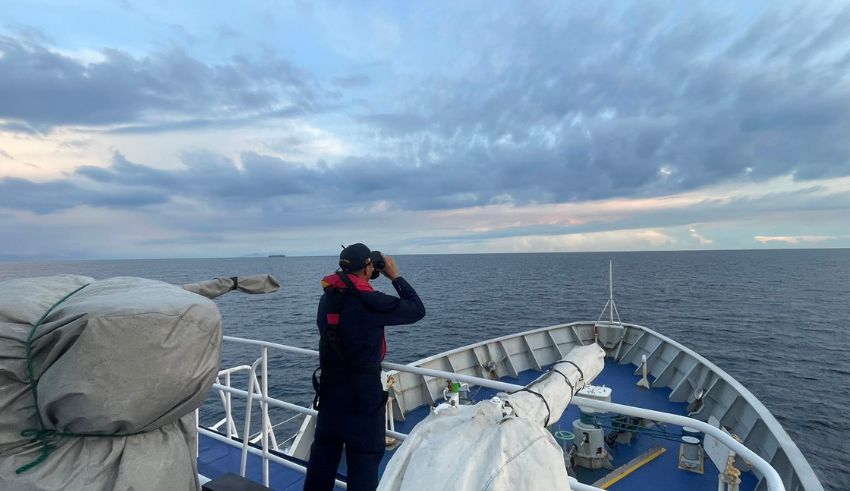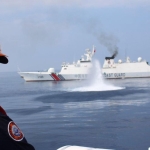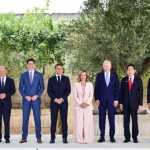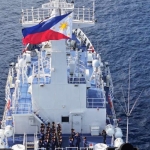
The Philippines recently celebrated the 2016 arbitral verdict on the West Philippine Sea (WPS). By dismissing China’s broad claims inside its “nine-dash line,” this historic ruling by the Permanent Court of Arbitration in The Hague mostly favored the Philippines. China keeps rejecting the decision, while the international community finds increasing backing for the Philippines.
A Reason for Celebrating Legal Victory
Celebrating the arbitral decision as a legal triumph for her sovereign powers in the WPS, the Philippines marks The decision underlines the legitimacy of China’s resource exploitation activities inside the Philippines’ exclusive economic zone (EEZ) and explains its privileges there. Apart from reminding us of the legal victory of the nation, this annual celebration supports its position on safeguarding marine rights against invasions.
The legal certainty the verdict offers helps the Philippines to boldly exercise its rights in foreign venues. It is also a vital instrument in diplomatic talks since it lets the Philippines strengthen its claims on a strong legal basis. Furthermore, the decision has pushed other Southeast Asian countries to pursue their maritime claims using legal channels, therefore supporting a rules-based strategy to settle territorial conflicts.
World Powers Voice Support
Consistently opposing China’s aggressive activities in the WPS, the United States is a critical friend of Philippines. Maintaining its respect of international law, the United States keeps freedom of navigation operations in the contested areas. These actions guarantee that international marine lanes stay open and safe, therefore acting as a potent declaration of solidarity.
Apart from military moves, the United States has also participated in diplomatic campaigns to fortify its ties with the surrounding areas. Strategic discussions and high-level visits highlight the United States’ will to assist the Philippines and other regional partners. To further improve its defense capacity and readiness, the United States has also expanded its military assistance and training initiatives for the Philippines.
European Union
Encouraging all sides to accept the arbitral decision, the European Union has also voiced support for a rules-based order in the South China Sea. Emphasizing the relevance of international law, the EU supports the stance of the Philippines and advocates diplomatic, peaceful resolutions of the problems.
European nations have aggressively supported adherence to the ruling by means of multilateral forums and international organizations. To help the Philippines negotiate the convoluted marine legal terrain, they have also given it technical and legal support. The whole EU approach emphasizes its dedication to foster peace and stability in the area.
Asean Nations
China has conflicts with several Southeast Asian countries like Vietnam and Malaysia in the South China Sea. These countries have showered support on the Philippines, advocating a peaceful settlement grounded on international law. The group posture of ASEAN members emphasizes regional unity and the shared goal in preserving security and stability in the area.
Emphasizing communication and cooperation, ASEAN’s strategy aims to create a consensus among members by Cooperative projects and joint comments seek to show a united front against unilateral policies endangering regional stability. Working together, ASEAN members hope to increase their collective bargaining muscle and encourage a peaceful resolution of the problems.
Beyond Statements: Action Speak Louder
Although announcements of solidarity are vital, other nations are acting more specifically:
Enhanced Military Availability
Near the WPS, several nations—including the United States, Australia, and Japan—have performed combined military operations with the Philippines. These drills present a consistent front and discourage Chinese aggressiveness. The presence of foreign military in the region emphasizes the worldwide dedication to respect of marine rights and discourage of unilateral acts.
These military drills improve allied forces’ capacity to react to possible hazards by increasing their interoperability and cooperation among them. By highlighting the preparedness and will of the international community to preserve marine rights, they also discourage any violent behavior.
Freedom of Navigating Operations
Operations of freedom of navigation (FONOPS) by several nations question China’s over ambitious maritime claims. These actions show the right of the international community to negotiate freely in world waters. Through these activities, nations assert the idea that no nation can unilaterally limit or regulate access to international rivers.
Diplomatic initiatives to solve the underlying causes of the conflicts supplement FONOPS by means of negotiations and dialogues. Combining military presence with diplomatic involvement helps the international community to keep peace and advance a rules-based order in the South China Sea.
Challenges Still: a Long Game
The Philippines finds a difficult scenario even with rising global backing. China keeps claiming its supremacy by means of militaristic actions and resource exploitation. Strategic build-up of artificial islands and military bases by the Chinese government in the WPS still causes great worry since it compromises regional stability and security.
The Philippines has to negotiate these difficulties cautiously, balancing diplomatic initiatives with forceful behavior to prevent raising hostilities. Although the support of the world community offers a buffer, the Philippines still has responsibility to actively participate in global forums and use its legal triumph to defend its marine rights.
Keep Reading
Ahead: Cooperation and Negotiations
Although the arbitral decision is a legal triumph, a peaceful WPS settlement calls for ongoing diplomatic work. Supported by international assistance, cooperation and negotiation are the most sensible road forward. Supported by the world community, the Philippines can use the arbitral decision to seek a peaceful, rule-based resolution in the South China Sea. Tensions must be reduced and long-term stability in the area promoted by ongoing diplomatic communication and multilateral agreements.
Transparency, confidence-building actions, and mutual respect of international law should be the main priorities of diplomatic activities. To foster peace and stability in the South China Sea, the Philippines can collaborate with regional partners to create frameworks for collaboration including joint resource management and environmental protection projects, so supporting stability.
Final Thought
The anniversary of the arbitral decision is not only a time for introspection for the Philippines but also a focal point for the world community to restiter their support of a rules-based order. The prospect for a fair and peaceful resolution of the conflicts in the South China Sea is still alive as world powers stand in solidarity with the Philippines. Navigating the challenging maritime terrain and guaranteeing that international law rules will depend on continuous attempts to mix diplomacy with strategic operations.
A consistent dedication to diplomacy, cooperation, and the rule of law will be needed on the road forward. The Philippines can maintain its sovereignty and help to ensure regional stability by using international backing and keeping up its advocacy of peaceful solutions, so guaranteeing that the lessons of the arbitral verdict direct further events in the South China Sea.



























